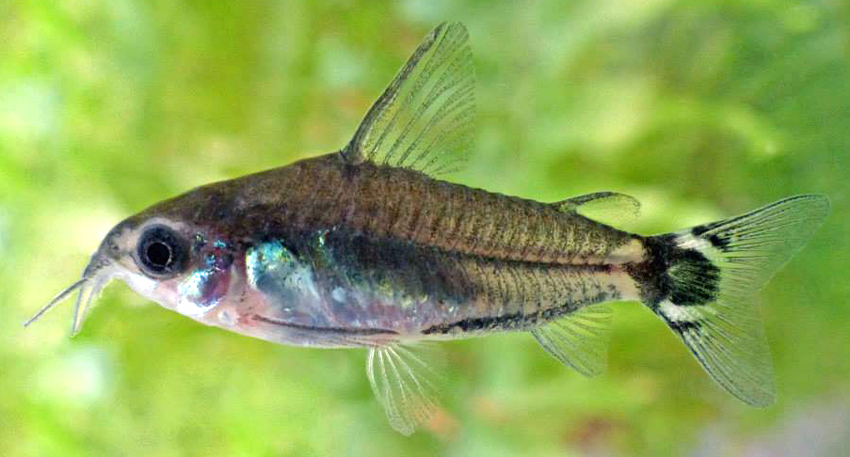new combination from Corydoras:
Gastrodermus hastatus (Eigenmann & Eigenmann, 1888)
published in:
Dias, A.C., L.F.C. Tencatt, F.F. Roxo, G.S.C. Silva, S.A. Santos, M.R. Britto, M.I. Taylor & C. Oliveira (2024):
Phylogenomic analyses in the complex Neotropical subfamily Corydoradinae (Siluriformes: Callichthyidae) with a new classification based on morphological and molecular data.
Zoological Journal of the Linnean Society, 31 p., advance access publication 11 June 2024, doi: /10.1093/zoolinnean/zlae053
abstract (from publication):
The family Callichthyidae, which comprises the subfamilies Corydoradinae and Callichthyinae, represents one of the largest families within the Siluriformes. Corydoradinae, the largest subfamily of Callichthyidae, alone accounts for >200 valid species, with new species being described frequently. This subfamily holds significant popularity among catfish enthusiasts worldwide, mainly because Corydoras are small, peaceful, and colourful fishes. Recognizing the existence of polyphyletic groups within Corydoradinae, the aim of this study was to construct a new phylogenetic hypothesis using genomic data (ultraconserved elements) and to re-evaluate the synonymized genera using the most recent morphological data. Our results supported the monophyly of Corydoradinae and identified seven distinct groups of species, each one with an associated pre-available generic name. These genera, namely Corydoras, Aspidoras, Scleromystax, Gastrodermus (resurrected), Osteogaster (resurrected), Brochis (resurrected), and Hoplisoma (resurrected), were all validated based on evidence derived from molecular and morphological analyses. A taxonomic key for the Corydoradinae genera is provided.
Above photo by Felipe Alonso.

